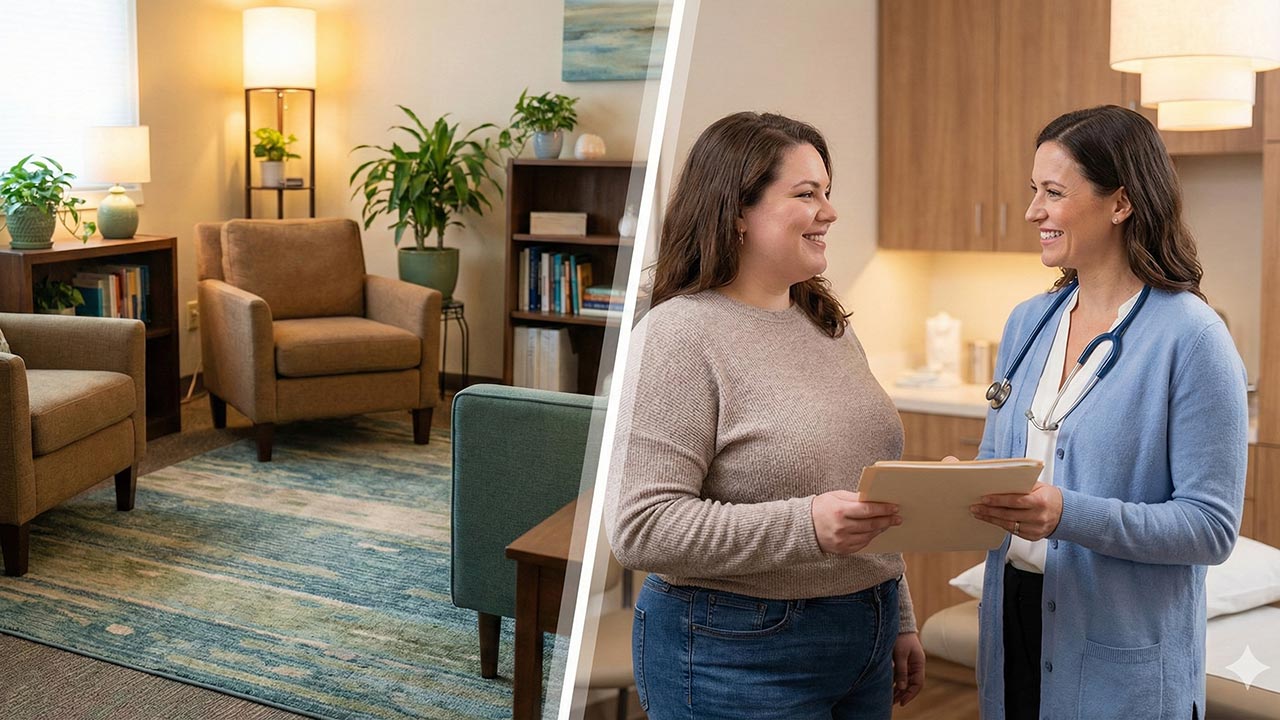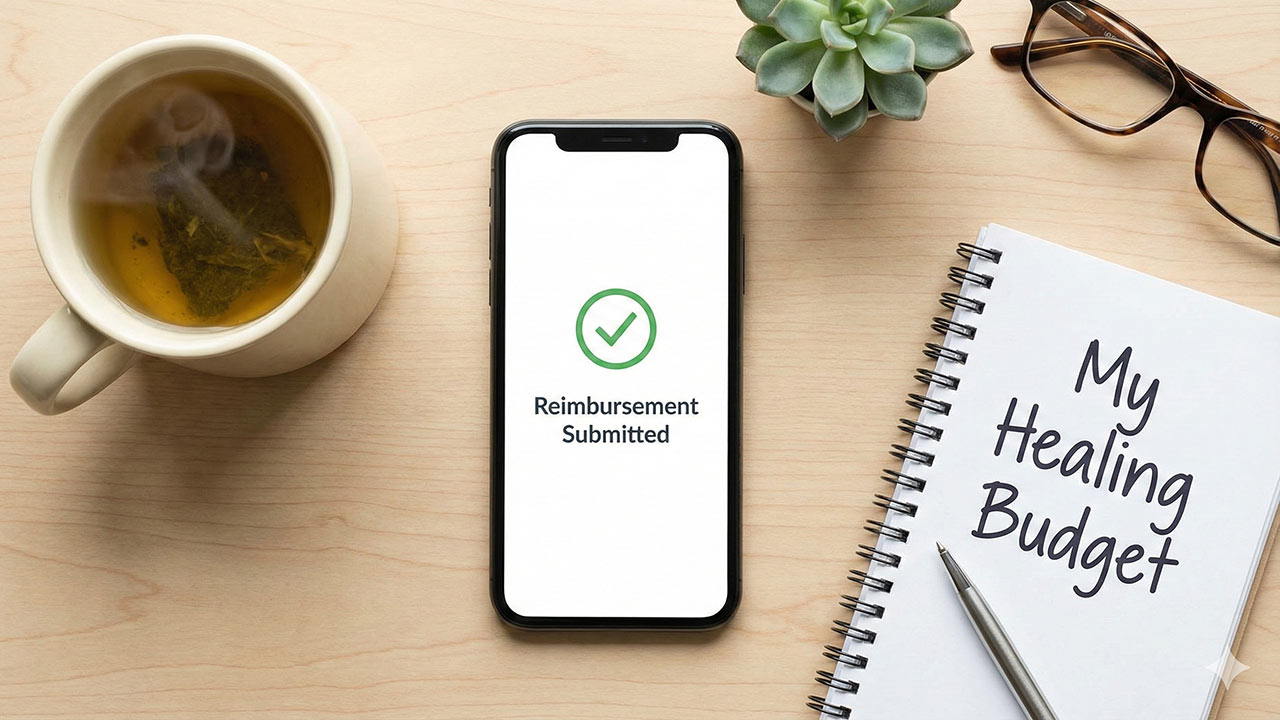Has the thought ever crossed your mind: does online therapy really work? Undeniably, the rise of Online Therapy has revolutionized the traditional concept of therapy, making mental health services accessible right at the fingertips. As most of us venture into this realm of digital counseling, it is valid to ponder whether online therapy holds the same value and effectiveness as face-to-face therapy.
Top 5 Reasons Why Online Therapy Works:
1. Effectiveness: Research validates that online therapy plays a crucial role in managing various mental health issues such as depression, anxiety, PTSD, and more.
2. Accessibility: Overcome geographical, transportation, or time constraints by accessing therapy at any location of your comfort.
3. Affordability: Most online therapy services often cost less than traditional face-to-face counseling.
4. Anonymity: With the option of using pseudonyms, individuals who feel embarrassed to seek therapy in person can maintain their privacy.
5. Flexibility: Reschedule, cancel, or book appointments at your convenient timing.
At Resilient Mind Counseling, we wholeheartedly endorse online therapy as we’ve seen its transformational power in our clients’ lives firsthand.

In the ensuing article, we have gathered opinions from five industry experts to unravel the effectiveness of online therapy, bringing forth its benefits, challenges, and how it holds up in comparison to traditional therapy. Join us in this exploratory journey as we delve into the nuances of online therapy.
Expert Opinion 1: Effectiveness of Online Therapy for Anxiety, Depression, and PTSD
Research Supporting the Effectiveness of Online Therapy
When it comes to the question, ‘does online therapy work?’, the research speaks volumes. A comprehensive review of over 60 studies found online therapy to be as effective as in-person sessions for most individuals dealing with anxiety, depression, and post-traumatic stress disorder (PTSD) . This is a significant finding that underscores the promise of online therapy in addressing mental health issues.
The effectiveness of online therapy extends to various formats, including real-time chat sessions and asynchronous messaging. A 2020 study revealed that individuals with anxiety or depression saw a reduction in their symptoms after text therapy . This highlights the adaptability of online therapy to different modes of communication, catering to the comfort and convenience of the client.
How Online Therapy Works for Anxiety, Depression, and PTSD
At Resilient Mind Counseling, we leverage the power of online therapy to help our clients deal with a range of mental health conditions, including anxiety, depression, and PTSD. We employ different therapeutic approaches tailored to the individual’s needs, such as Cognitive Behavioral Therapy (CBT), which has been shown to be effective in treating anxiety when delivered online .
Online therapy for anxiety, depression, and PTSD works by providing a safe and supportive virtual environment for clients to discuss their feelings, thoughts, and behaviors. The therapist assists the client in identifying negative thought patterns and developing healthier coping mechanisms.
Moreover, the virtual nature of the therapy allows for flexibility in scheduling and greater access to mental health professionals, making it a convenient option for many individuals. The anonymity that online therapy provides can also make individuals more comfortable discussing sensitive topics, enhancing the therapeutic process.
In conclusion, research and expert opinion support the effectiveness of online therapy in treating anxiety, depression, and PTSD. At Resilient Mind Counseling, we are committed to harnessing this potential to provide high-quality, accessible, and effective mental health services.
Expert Opinion 2: The Convenience and Accessibility of Online Therapy
Online therapy offers a range of benefits that make it a practical and appealing choice for many individuals. However, does online therapy work when it comes to convenience, accessibility, and cost-efficiency? Let’s explore what experts have to say.
Overcoming Geographical and Time Constraints with Online Therapy
One of the most significant advantages of online therapy is the freedom it offers from geographical and time constraints. You can access therapeutic support from any location, at any time, as long as you have an internet connection. This flexibility can be a game changer, especially for those living in remote areas or regions with limited mental health resources.
As per an article on Psychology Today, online therapy can be particularly beneficial for those living in rural areas or those with transportation difficulties. At Resilient Mind Counseling, we have seen this benefit firsthand, as many of our clients have been able to continue their therapeutic journey unimpeded, regardless of their location.
The Affordability of Online Therapy
Another attractive feature of online therapy is its cost-effectiveness. According to Psychology.org, therapists who join virtual therapy networks often offer cheaper rates when booking multiple sessions. This can make therapy more accessible for those with financial constraints.
However, consider that while initial rates may be low, prices might increase over time. Therefore, it’s crucial to thoroughly research and discuss costs with your therapist before starting your sessions. We at Resilient Mind Counseling believe in transparency and affordability, and we aim to offer our clients the best possible rates for our online therapy services.
In conclusion, online therapy stands out for its convenience, accessibility, and affordability. It enables individuals to access therapeutic support regardless of their geographical location, offers flexible scheduling options, and can often be more cost-effective than traditional face-to-face therapy. These advantages make it a viable and effective option for many individuals seeking mental health support. In the next section, we will explore the role of Cognitive Behavioral Therapy in online therapy.
Expert Opinion 3: The Role of Cognitive Behavioral Therapy (CBT) in Online Therapy
When discussing the question, “does online therapy work?”, it’s important to highlight the role of Cognitive Behavioral Therapy (CBT). As a common therapeutic approach, CBT has shown its effectiveness in treating a wide range of mental health conditions, and this effectiveness extends to online platforms as well.
The Effectiveness of CBT in Online Therapy
CBT focuses on helping individuals identify and change negative thought patterns that lead to destructive behaviors and beliefs. Studies have shown that when delivered online, CBT can effectively alleviate symptoms of anxiety and depression. In fact, according to research, CBT in any format can work to relieve these symptoms.
Online CBT has an added advantage of accessibility, making it possible for more people to benefit from this form of therapy. It also provides a comforting environment for those with social anxiety, allowing them to receive therapy in the comfort of their own homes.
How CBT is Delivered in Online Therapy
Delivering CBT online involves a similar process to traditional in-person therapy. The therapist will listen actively and empathetically, provide feedback, and help the individual set goals for therapy. Depending on the specific issues at hand, various techniques and strategies will be used to help the individual work through their problems.
One unique aspect of online CBT is the use of “homework” assignments. These tasks, assigned by the therapist for the individual to complete between sessions, may include journaling, practicing relaxation techniques, or working on specific challenges. These assignments enhance the therapy process and help individuals apply what they’ve learned in their daily lives.
At Resilient Mind Counseling, we understand the importance of adapting therapy to meet the individual’s needs. Whether it’s through CBT or another therapeutic approach, we are committed to providing effective online therapy that caters to the unique circumstances of each individual.

In the next section, we’ll explore some of the challenges and limitations of online therapy, along with strategies to navigate these potential obstacles.
Expert Opinion 4: The Challenges and Limitations of Online Therapy
While the effectiveness of online therapy is well-documented, it’s also essential to understand its potential limitations. Like any other form of therapy, online therapy may not work for everyone. It also comes with its own unique set of challenges.
Technological Issues and Cybersecurity Concerns
One of the main challenges is the reliance on technology. Technological issues such as dropped calls, frozen videos, and trouble accessing chat features can interrupt the therapy process and may be a barrier to treatment for some individuals. It’s important to have a stable internet connection and a reliable device to make the most of online therapy.
Another concern is cybersecurity. As therapists and clients exchange sensitive information online, the security and privacy of these communications become crucial. While reputable online therapy platforms prioritize privacy and have strong encryption and data protection measures in place, it’s always wise to check the platform’s privacy policies and security measures.
The Importance of Therapist Qualifications and Licensure
Ensuring the therapist’s credibility is another crucial aspect of online therapy. Some people advertising themselves as online therapists may not be licensed mental health treatment providers. It’s important to verify the therapist’s credentials and qualifications before starting therapy.
Licensed therapists have undergone rigorous training and have passed state licensure exams. They include Licensed Professional Counselors (LPC), Licensed Clinical Social Workers (LCSW), psychologists, and psychiatrists.
When choosing a therapist, you should consider their specialization and experience. Different therapists have varying areas of expertise, and finding a therapist with expertise in your specific area of need can significantly enhance the effectiveness of therapy.
At Resilient Mind Counseling, all our therapists are licensed and have the necessary qualifications and experience to support your mental health journey. We understand the importance of security and privacy, and we use a secure, user-friendly platform to ensure your online therapy sessions are effective and safe.
Despite these potential challenges, online therapy can be an effective and convenient way to access mental health services. In the next section, we’ll provide some tips to help you find the right online therapist.
Expert Opinion 5: Tips for Finding the Right Online Therapist
When it comes to the question of ‘does online therapy work,’ the effectiveness can often depend on the therapist you choose. But how do you find the right one? Here are some expert-approved tips.
Consulting with a Doctor and Checking Insurance Directories
Our first piece of advice is to consult with a healthcare professional. They can provide valuable insights into the type of therapy that might work best for your specific needs. They can also recommend reputable online therapists who specialize in those areas.
Additionally, you should check with your insurance provider. Many insurance plans now cover online therapy, and they can provide a list of therapists that are covered under your plan. This can help significantly reduce the cost of therapy and ensure that you’re choosing from a pool of licensed professionals.
Reading Reviews and Asking for Recommendations
Doing your homework is crucial when choosing an online therapist. Read reviews of potential therapists to get a sense of their communication style and the effectiveness of their methods. The best online therapist for someone else might not be the best one for you, so consider what style and approach will best suit your needs.
Don’t hesitate to ask for recommendations. You can ask friends, family, or healthcare professionals for referrals. If someone you trust has had a positive experience with an online therapist, that’s a good sign that the therapist is reputable and effective.
At Resilient Mind Counseling, we offer a comprehensive directory of therapists to help you find the right fit. Each therapist’s profile includes their qualifications, specializations, and contact information, making it easy to find a professional who can address your specific needs.
Finding the right online therapist may take some time and effort, but it’s an important step in ensuring that online therapy works for you. With the right therapist, online therapy can be a convenient and effective solution for addressing your mental health needs.
Conclusion: The Future of Online Therapy
The question, ‘does online therapy work?’ has been asked and answered by mental health experts worldwide, and the consensus is largely positive. As we’ve seen from the expert opinions shared, online therapy can be as effective as traditional therapy, offering several advantages while also acknowledging the challenges it presents. But what does the future hold for online therapy?
The Potential of Online Therapy in Expanding Mental Health Services
The potential for online therapy to expand and improve mental health services is immense. For starters, it can offer easier access to mental health services for individuals in remote or underserved areas, or for those with mobility or transportation limitations. This alone can significantly increase the number of people who can access much-needed mental health care.
Moreover, advancements in technology are opening up new opportunities to enhance the quality of online therapy services. Some of these include the use of video conferencing for teletherapy sessions, mobile apps that offer mental health resources and assessments, and wearable technology that can track and monitor mental health symptoms. As technology continues to evolve, we can expect online therapy to become even more effective and accessible.
The Importance of Continued Research and Regulation in Online Therapy
While the advantages of online therapy are clear, it’s equally important to continue researching its effectiveness and setting appropriate regulations. This is crucial in addressing the challenges and limitations that come with online therapy, such as ensuring privacy and confidentiality, maintaining professional standards, and managing technological issues.
Research needs to keep pace with the rapid developments in technology to evaluate the effectiveness of new tools and techniques. Regulations need to evolve to ensure that online therapists are qualified, licensed, and abide by the same ethical standards as traditional therapists.
As we continue to prioritize mental health services, online therapy holds great promise in making these services more accessible and effective. However, it’s crucial to remember that online therapy is a tool, not a replacement for traditional therapy. It’s an alternative that can complement and enhance traditional services, bringing us one step closer to a future where everyone can access the mental health care they need.
For more information on our online therapy services at Resilient Mind Counseling, visit our online therapy services page. We also offer free 15-minute telehealth consultations to help you decide if online therapy is the right choice for you.















